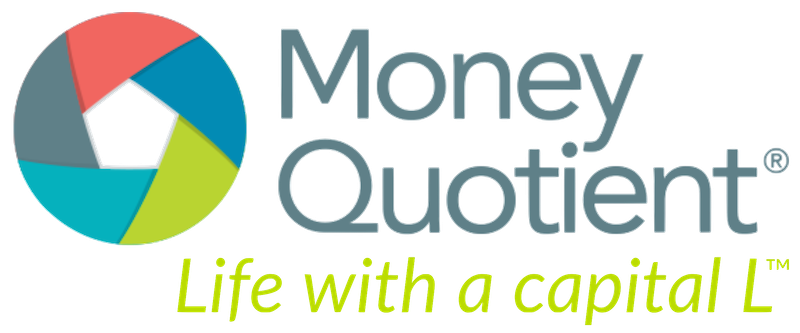Do not get lost in a sea of despair. Be hopeful, be optimistic. Our struggle is not the struggle of a day, a week, a month, or a year, it is the struggle of a lifetime. Never, ever be afraid to make some noise and get in good trouble, necessary trouble.
John Lewis
– A tweet from June 2018
Portland, OR is the home of both Money Quotient® and sister organization MQ Research & Education™. Our city has gotten a lot of press lately because of 61 straight nights of protests in support of the Black Lives Matter movement. Yes, there have been some injuries and some destruction of property—all of which is very unfortunate.
However, the bigger story is the thousands of people who show up every night to demonstrate their CARE. These peaceful protestors rarely make the national news, but their presence is a visible show of support for equality and justice for all. They are making noise and stirring up good trouble…
 MQ’s own Amy Mullen took her turn on the front lines this past weekend. She reported being inspired and humbled by the thousands of people—of all ages, all walks of life, and all races—who came together in support of a common cause.
MQ’s own Amy Mullen took her turn on the front lines this past weekend. She reported being inspired and humbled by the thousands of people—of all ages, all walks of life, and all races—who came together in support of a common cause.
In addition, a bold and loving statement was made by the “Wall of Vets” who joined the “Wall of Moms" and the “PDX Dad Pod” in support of this movement. One creative and non-violent tactic the “dads” used was to provide protesters with leaf blowers to redirect tear gas fired by federal agents.
The sign that Amy carried read “Financial Planners for Black Lives Matter. Put Your Money Where Your Mouth Is,” and it drew quite a bit of attention from others in the crowd. Some struck up conversations with her and one woman even sent an email the next day asking for a referral.
She wrote:
I have been looking for a financial planner who understands that maximizing return on investment (at any moral cost) isn't my sole objective.
What??? Your goal is not maximizing return? If this women came to you for financial planning advice, how would you respond to her?
This is new territory for many financial planners. Of course, “good” financial planning does require taking into consideration a client’s risk tolerance, life expectancy, family circumstances, and so on. But, few financial planners also have the background and experience needed to craft a financial plan that—at the very least—includes investments that “do no harm.”
Nonetheless, I think we are reaching a tipping point where our national consciousness is going to demand this type of guidance from their financial professionals. It is time to embrace new ways for helping clients to evaluate how money flows in and out of their lives, and to also feel responsible for the intended and unintended consequences of those choices.
It is time to embrace new ways for helping clients to evaluate how money flows in and out of their lives, and to also feel responsible for the intended and unintended consequences of those choices. Click To TweetLuckily, we do have many who have already started this journey and can help to light the path. Marco Vangelisti is a colleague who teaches “Towards Aware and Values Centered Investing” for MQ University. In his most recent essay, “Making Amends Through Regenerative Investing,” he reflects on the fact that “financial resources very often have a troubled history.” In addition, he offers a framework for ranking investments on an awareness/meaning dimension: UNAWARE, AWARE, NO-HARM, IMPACT, and REGENERATIVE. Click here to learn more.
Shane D. Coker also offers several concrete suggestions for “making a difference” in his article “Apply Diversity, Equity, and Inclusion to the Work of Financial Practitioners: A Call to Action” which was published in the most recent issue of the AFCPE newsletter. Click here to learn more.
In summary Shane wrote:
Diversity, Equity, and Inclusion is ingrained in the work we do as financial practitioners when working with individuals and communities to provide them with information and possibilities to combat their financial concerns. Assisting clients from diverse backgrounds is a unique superpower that we as practitioners can cultivate and nurture.
Author’s Note: I would love to hear your thoughts on this topic. In addition, please share resources, tools, and authors that have helped you in your quest to contribute to social, racial, economic, and healthcare equity. —Carol Anderson
